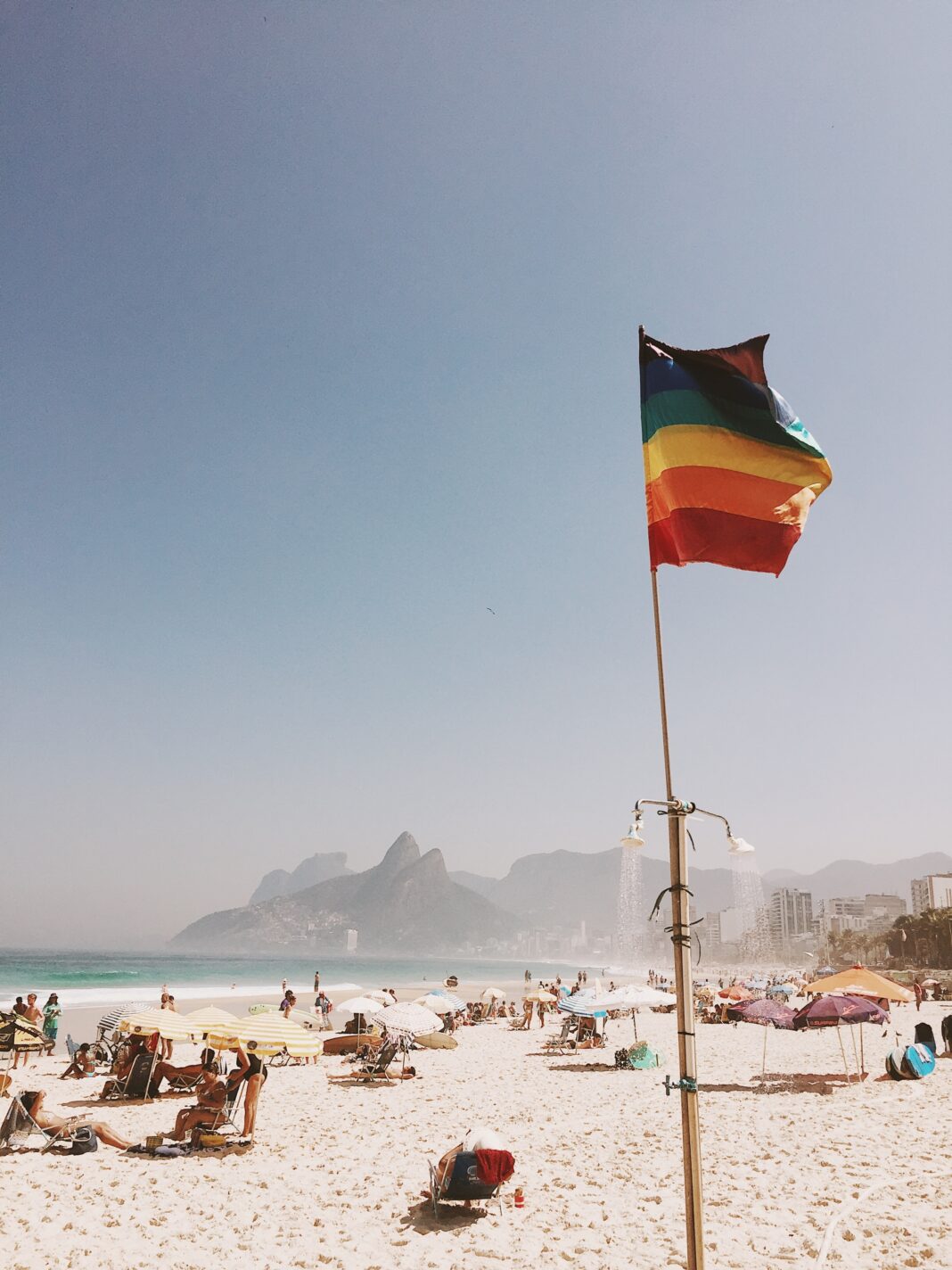Rio de Janeiro is famous around the world for Copacabana Beach, the statue of Cristo Redentor on the Corcovado hilltop, which is one of the new seven wonders of the world, and the city’s spectacular annual Carnival (which runs next from February 9 to 14, 2024).
But the Cidade Maravilhosa (“Marvelous City”) has many more ways to seduce you than just those famous attractions. One of the most popular LGBTQ+ destinations in South America, Rio’s scene is based primarily in the upscale beach area of Ipanema—Posto 9 is where the community gathers to sun itself. Yet over the past few years, rainbow flags have been spreading to many neighbourhoods across the city, especially after a 2019 court decision that extended anti-discrimination laws to LGBTQ+ people. Now LGBTQ+ venues can be found throughout the South Zone (which includes Copacabana, Ipanema and other beachside neighbourhoods), as well as downtown.
With so much happening, it can be hard to keep up with what’s hot this week and what’s hotter the next. That’s why I’m here—to give you some local tips on some of Rio’s most essential, as well as lesser-known, hotspots. From the point of view of a native Carioca, born and raised here, I can tell you it’s a pleasure and a privilege living in a place where others vacation. Rio is a city with so many options for all ages, budgets and genders. Here are my favourites:
Where to stay
Most accommodations in Rio de Janeiro tend to be LGBTQ+-friendly, especially those located in the tourist areas of Copacabana, Ipanema, Botafogo and downtown.
Jo&Joe Rio (Beco do Boticário 26, Cosme Velho, Rio). Located in the neighbourhood of Cosme Velho, a few metres from Corcovado, this easygoing place to crash was voted the second-best hostel in the world, according to HostelWorld. A row of old houses was revitalized and given a modern style that contrasts with the historic structure—the solid wood ceiling in some rooms and the fountains in the garden give it real character. The hostel also has lots of space for leisure and mingling: three swimming pools, a restaurant, two bars, a games room, co-working space and a space for events. There are 80 rooms, including shared and private. Though it’s not so close to the beach or subway, it’s easily accessible by Uber or cab.
Che Lagarto (Rua Barata Ribeiro 111, Copacabana, and Rua Paul Redfern 41, Ipanema, Rio). A nationwide chain of hostels (they’re also in Uruguay), these are modest places to stay with a party vibe. Both the Ipanema and Copacabana locations are located less than 250 metres from the beach—score. The Copacabana branch is in an old house with a lively bar at the entrance, so it’s not a place for those who are early to bed, early to rise.
Solar do Redentor Guesthouse (Rua Cosme Velho, Casa 1451, Cosme Velho, Rio). This guesthouse and hostel, founded by a gay couple, is one of the rare accommodations in the city dedicated to an LGBTQ+ clientele. A large house with lots of greenery and views of Corcovado, there are six spacious rooms, a pool, a steam sauna, a BBQ area and other amenities.
Where to enjoy the sun and sand
Ipanema Beach (Between Posto 8 and 9, at the bottom of Rua Farme de Amoedo). It’s easy to find—just look for the rainbow flag. The flirting never stops, nor does the show of fit bodies. Rent a chair and umbrella, sit back and let the servers keep you in good supply of food and drink.
Rainbow Kiosk (in front of Copacabana Palace Hotel). Copacabana used to be where LGBTQ+ people hung out. Though the crowds have mostly moved to Ipanema, this is still an interesting place to drink and admire the tanned bodies walking along the Copacabana beachfront.
Abricó Beach (Av. Estado da Guanabara, near Grumari). The nudist beach, which is only 250 metres long, is surrounded by nature in the western part of the city. Located about 43 kilometres south of Copacabana, it can be accessed only by car (buses do not run on the three-kilometre road by the sea). That makes it a much more exclusive and private place. It’s located in an environmental preservation area surrounded by mountains, and there are several other beautiful beaches nearby. Local gay men frequent Abricó, but few foreign tourists… yet. On weekends, the local naturist association hosts gatherings on the beach.
Where to go out
Pink Flamingos (Rua Rodolfo Dantas 16, Copacabana, Rio). Considered the nightclub of the moment because of its colourful and modern design—check out the pink couches and many flamingo sculptures. The disco has shows by drag queens and DJs. Attendees are mostly young; many foreign tourists go there because of its proximity to Copacabana Beach.
La Cueva (Rua Miguel Lemos 51, Copacabana). Opened in 1964, it’s the oldest gay bar and nightclub in Latin America and it’s never gone out of style. The interior can seem a bit claustrophobic—yes, it’s meant to simulate a cave. The music tends to be retro, with lots of 1980s hits attracting a more mature crowd and their admirers.
Galeria Café (Rua Teixeira de Melo 31, Ipanema). This long-running space mixes art, performances, drinking and dancing. The crowd skews young, the style is modern and numerous colourful murals evoke a creative queer vibe. Unlike many Rio clubs, this one gets a lot of women, too. Located in the heart of Ipanema, it is the perfect spot for drinking caipirinhas.
Where to hook up
Point 202 (Rua Siqueira Campos 202, Copacabana). The largest sauna in Rio and the only one in Copacabana, the three-storey space has a dry and steam sauna, showers, suites, a bar and a stage where drag queens and strippers strut their stuff. Note that it is a rent-boy sauna known for its beautiful and polite workers. Foreigners come here and it’s usually crowded on weekends.
How to stay safe
One of the most popular scams pulled on gay and bi men in Brazil is known as “Good night, Cinderella,” where the victim is drugged and robbed. So do not accept drinks from strangers, especially in bars and nightclubs. If you run into problems, there is a special police force dedicated to helping tourists: DEAT—Delegacia Especial de Apoio ao Turismo (Avenida Afrânio de Melo Franco 159, Leblon, Rio, +55-21-98596-7474).


